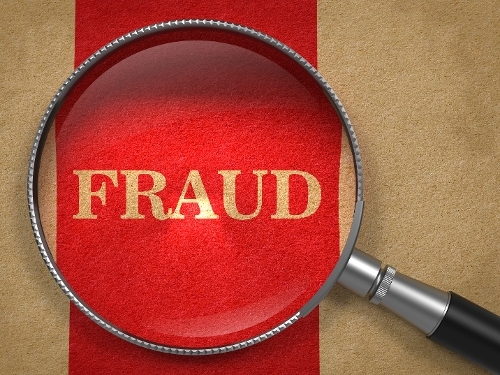
June 26, 2019
Following the yellow brick road further and further into technical advantages has improved many things about our everyday life. It has also put our personal information at greater risk than ever before. From filing fraudulent tax returns to tapping into your personal bank account, the list of ways your identification can be compromised seems endless.
While we go to great lengths to protect your information, personal commitment to deterring would-be criminals is very important. There is a wide variety of duplicitous methods used to trick potential targets. Familiarize yourself with different ways of being compromised and with actions you can take to avoid being scammed. Things like keeping your computer secure, avoiding phishing and malware, and protecting your personal information have become very important skills.
ID Theft
The main information targeted in most situations is your name, Social Security number, and birthdate. Consequently, you should be hyper-aware of those instances where that information is kept in one database. The fewer establishments that have this information the better, so be your own protection and press for if the information is actually needed. Social Security numbers, credit card numbers, and bank and even utility account numbers can be used to help steal a person’s money or open new accounts. Every time you receive a request for personal information, you should think about whether the request is truly necessary. Scammers will do everything they can to appear trustworthy and legitimate.
Beyond databases, consider where you keep these three pieces of crucial information together physically. Do you have your license and you Social Security card in your purse or wallet? If they are lost or stolen that may be all someone needs to “become you”.
Compromised IDs are often used by cyber criminals to file fraudulent tax returns in your name. These returns are targeted to take advantage of many refundable tax credits, and leave the tax payer to deal with proving that they’re the legitimate filer.
Email Alert
It is important in this day and age to never trust an unsolicited email with a request to click on a link or download an attachment. Even if you know the sender, many cyber criminals are finding ways to hack into emails and send things that appear to be from someone you’re familiar with, tricking unsuspecting recipients into downloading viruses and malware onto their systems. If you have any doubts check with the sender prior to opening the links or files.
Internet Hazards
Pop-up ads and internet advertisements may not be from a source you truly know, either. If you have any questions check with the company that’s being represented. If it’s a company you’re unfamiliar with type their name into a search engine with a “+ scam” or “+ review” to see if they have a negative reputation.
When shopping or banking online, look for sites that start with “https”. The “s” stands for secure and assures that your information will be encrypted. You should see the “https” designation at the top of EVERY page in the site.
Use strong passwords on all of the sites you access. As a general rule, the longer the password, the harder it will be to crack. Mix upper and lowercase letters, symbols, and numbers and stay away from commonly guessed things such as birthday, addresses and common words.
Security software is important to your online security. Select one that protects you across multiple devices such as your laptop, cell phone, and tablets and provides protection against viruses, malware, adware, and Trojans. The software should be self-updating to keep your devices protected from the most recent security threats. You should NEVER download a security software from a pop-up, even if it’s proclaiming that you’re already infected and should download the fix immediately. This is a common ploy that installs malware onto your system.
Phishing Scams
The easiest way for criminals to obtain your information is to simply ask you for it. Be particularly cautious of organizations, even those you know, who contact you and prompt you for information. If you question the legitimacy, reach back out on your own terms, ie call/email the company directly to see if the request is accurate.
IRS Impersonations
The Internal Revenue Service will never initiate contact with you in any way other than U.S. Postal Service. If you receive a call or email that is representing the IRS, do not give them any information. These false IRS calls have escalated in the past 5 years, and some of them can be very intimidating. We’ve even heard of people being threatened with court or police action if they don’t pay an overdue tax bill immediately with a credit card over the phone.
It's also important for taxpayers to know that the IRS:
- Never asks for credit card, debit card or prepaid card information over the telephone.
- Never insists that taxpayers use a specific payment method to pay tax obligations.
- Never requests immediate payment over the telephone.
- Will not take enforcement action immediately following a phone conversation. Taxpayers usually receive prior written notification of IRS enforcement action involving IRS tax liens or levies. Some scammers even threaten immediate arrest if the payment is not made immediately – don’t be bullied by these criminals.
If you’re ever in doubt of a situation trust your instincts. It’s far easier to take a moment and verify the validity of an information request than to rebuild a stolen identity.
